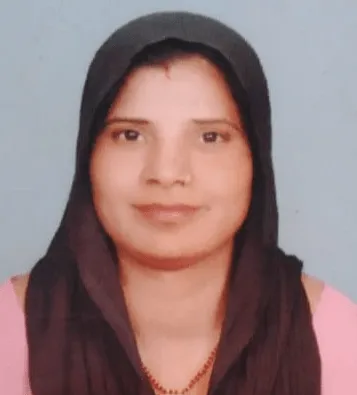Domestic work is like any other work for me, and we are not servants, says Deepa, a leader-volunteer at SEWA, Punjab
This International Domestic Worker Day, I would like to raise my voice along with all my domestic worker sisters in Punjab so that we are heard and recognised for the work we do.
I am Deepa, and it’s been 15 years since I moved to Mohali, Chandigarh. I live in a joint family of nine members, including my husband, mother-in-law, brother-in-law, and five children.
My husband was the only earning member of the family, and we had great difficulties in managing our expenses. Seeing this, I thought of working as a domestic worker.
I discussed it with my family, and my husband replied, saying, “Women don’t go out to work in our family. If I send you to work, what will people say? They will make fun of me for living on my wife’s income.”
However, I didn’t give up, and I tried explaining to my husband that if I work, our economic conditions would improve, and he agreed. That’s how I started working at one house, and then eventually five, and I started earning Rs 8,000 a month.

Deepa is a domestic worker and community leader with SEWA Punjab
One day, a behan from SEWA (Self Employed Women’s Association) came to my house for a survey and told me about this organisation in Punjab and its work.
After listening to them, I was interested in joining their collective. I joined SEWA as a member, attended community meetings, and soon became an ‘agewan’ (aage badhne wali behan) — someone who leads other women in their communities.
This work allowed me to work with people and help them, and, in turn, I found a sense of satisfaction with this work. Even during the lockdown, when my domestic work stopped, I continued the fieldwork and distributed glucose to needy people. One day, I found a man who was ill, but we didn’t have any glucose left. However, I had one packet at my home, so I brought it and gave it to him.
Being a domestic worker and getting involved in community work has taught me empathy and selfless service. That one box I gave him earned me a lot of good wishes and satisfaction.
Working in the community has changed my life and has brought a direction into my life. Today, I understand the value of a collective; when women are organised and come together they have a collective voice and fight for their rights, they change their lives for good.
I would take this opportunity to request one and all to do their bit. Community work has earned me respect and dignity in society and my family. Despite this, I have stood by my work as I am a firm believer that domestic work is just like any other work, and domestic workers, too, are workers and not servants.
I wish to have equal rights at the workplace just like any other worker. The sad reality is that we are not looked after by anyone, not even the government or the ones who hire us.
Even in times of natural disasters, people like me don’t get any assistance from the government or our overseer. During the lockdown, the government helped the labourers by providing some sort of assistance, but we weren’t taken into consideration.
This International Domestic Worker Day, I would like to raise my voice along with all my domestic worker sisters in Punjab so that we are heard and recognised for the work we do.
Deepa is a leader volunteer at SEWA Punjab, which is part of the Self Employed Women's Association, a non-profit that promotes the rights of low-income, independently employed female workers
Edited by Suman Singh







